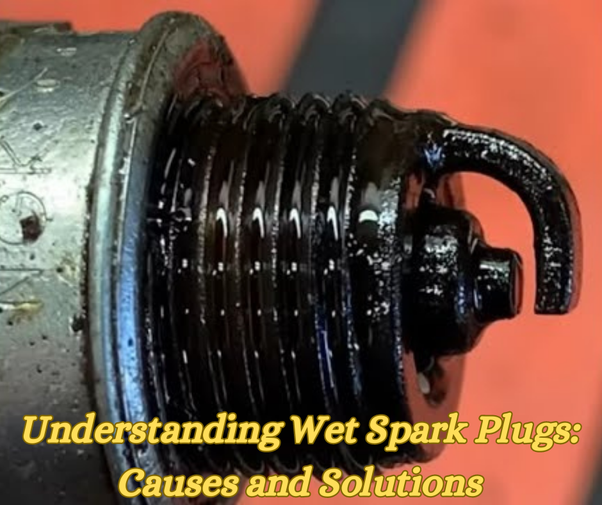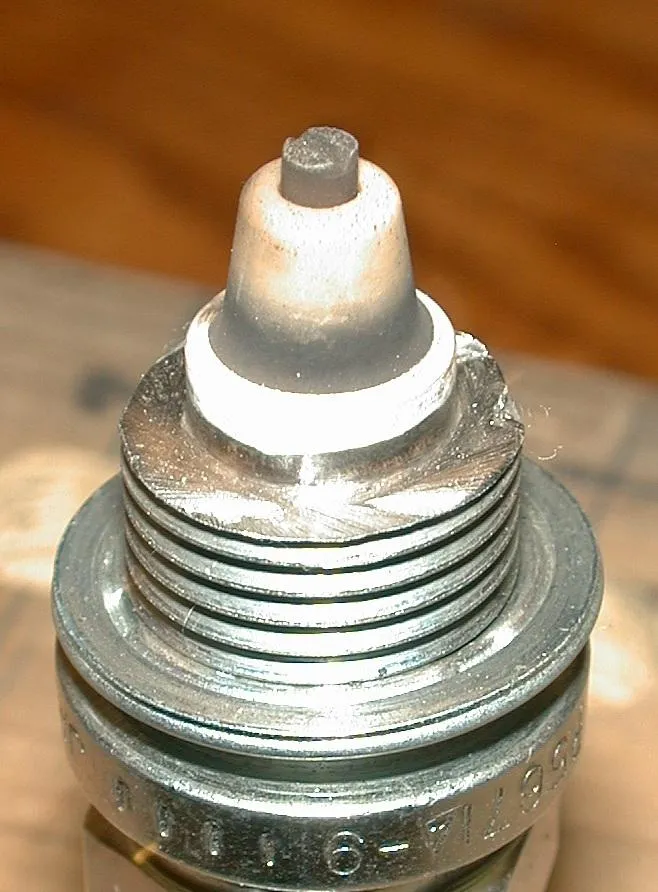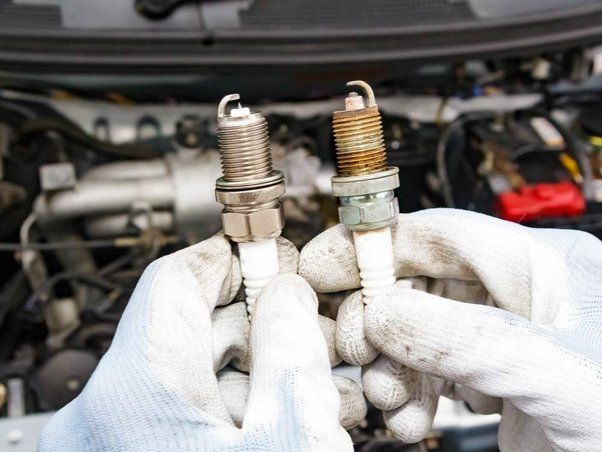


Spark plugs play a crucial role in the ignition system of gasoline engines. They are responsible for providing the spark that ignites the air-fuel mixture in the combustion chamber, allowing the engine to run. However, sometimes spark plugs can become fouled or coated with gasoline, which can lead to various issues and potentially cause damage to the engine if left unaddressed. Dealing with gas on spark plugs is an important aspect of engine maintenance and troubleshooting.

One of the most frequent culprits behind gas on spark plugs is a rich air-fuel mixture. This condition occurs when there's an excessive amount of fuel relative to the air entering the engine. The main causes of a rich air-fuel mixture are:
| Cause | Description |
|---|---|
| Faulty fuel injectors | Leaking excess fuel or stuck in the open position |
| Clogged air filter | Restricting airflow |
| Fuel system component issues | Problems with oxygen sensors, mass air flow sensor, etc. |
Other common causes include:
Engine flooding during startup, where too much fuel enters the cylinders
Weak spark from low coil output or faulty ignition components
Vacuum leaks in the intake system
When faced with a potential case of gas on spark plugs, the first step is to remove and inspect the plugs themselves. Here's what to look for:
| Plug Condition | Indication |
|---|---|
| Wet or damp plugs with a strong gasoline smell | Fuel fouling |
| Black, dry soot | Rich condition |
| Very clean or white plugs | Coolant leaking into the cylinder |
| Shiny, wet black deposits | Oil fouling |
Additional troubleshooting steps include:
Checking for trouble codes related to misfires, fuel system, or sensors
Performing a fuel pressure test to identify leaking injectors
Inspecting the air filter and intake system for restrictions or leaks
Depending on the root cause, the following repairs may be necessary:
Replacing leaking fuel injectors
Cleaning or replacing fouled spark plugs
Fixing vacuum leaks in the intake system
Replacing faulty sensors (coolant temp, O2, MAF)
Adjusting fuel trim or mixture if excessively rich
Tips:
Use anti-seize on new spark plug threads
Torque spark plugs to spec using a torque wrench
Check for coolant leaks if one cylinder is very clean
In cases of severe oil fouling, more extensive repairs like replacing valve seals or piston rings might be required.
To prevent gas on spark plugs, follow these preventive measures:

Follow recommended spark plug replacement intervals
Use quality fuel and keep fuel system in good condition
Maintain air filters and intake system
Get regular engine tune-ups and diagnostics
Avoid excessive idling or short trip driving
The cost can vary depending on the root cause:
| Repair | Cost Range |
|---|---|
| Spark plug replacement (parts + labor) | $100 - $300 |
| Fuel injector replacement | $500 - $1000 |
| Intake system repairs | $300 - $800 |
| Sensor replacements | $200 - $500 |
| Major engine repairs for oil leaks | $1500 - $4000+ |
Addressing the issue promptly is recommended to prevent further damage and more expensive repairs down the line.
Gas on spark plugs is a common issue that can have various underlying causes. As a mechanic, I've learned that prompt diagnosis and repair are essential to prevent further damage and more expensive repairs down the line. Regular maintenance, including spark plug replacements, fuel system checks, and air filter changes, can go a long way in avoiding this problem.
By understanding the causes, troubleshooting methods, repair procedures, and preventive measures, you can keep your vehicle running smoothly and efficiently. Don't hesitate to consult a professional mechanic if you suspect gas on spark plugs or any other engine-related issues. Addressing the problem early can save you time, money, and frustration in the long run.
Faulty fuel injectors, clogged air filters, and issues with fuel system components like oxygen sensors or the mass air flow sensor can cause a rich air-fuel mixture. Engine flooding during startup is another potential cause.
Wet or damp spark plugs with a strong gasoline smell indicate fuel fouling. Black, dry soot deposits point to a rich air-fuel condition.
Checking for misfire or fuel system trouble codes, performing a fuel pressure test, and inspecting the air filter and intake system for leaks can pinpoint the underlying issue.
Replacing leaking fuel injectors, cleaning or replacing fouled spark plugs, fixing vacuum leaks, replacing faulty sensors, or adjusting the fuel trim might be required.
Follow recommended spark plug replacement intervals, use quality fuel, maintain air filters and the intake system, get regular tune-ups, and avoid excessive idling.
Depending on the vehicle and labor costs, spark plug replacement (parts and labor) can range from $100 to $300.
Fuel injector replacement can cost between $500 and $1000, depending on the vehicle and number of injectors.
In cases of severe oil fouling, more extensive repairs like replacing valve seals or piston rings might be required, which can be very expensive.
Addressing gas fouling promptly prevents further damage and more expensive repairs down the line, such as major engine repairs for oil leaks.
If you suspect gas on spark plugs or any other engine-related issues, it's recommended to consult a professional mechanic for proper diagnosis and repair.

Sarah isn't your average gearhead. With a double major in Mechanical Engineering and Automotive Technology, she dived straight into the world of car repair. After 15 years of turning wrenches at dealerships and independent shops, Sarah joined MICDOT to share her expertise and passion for making cars run like new. Her in-depth knowledge and knack for explaining complex issues in simple terms make her a valuable asset to our team.












